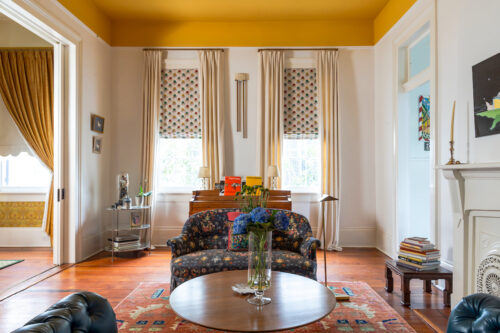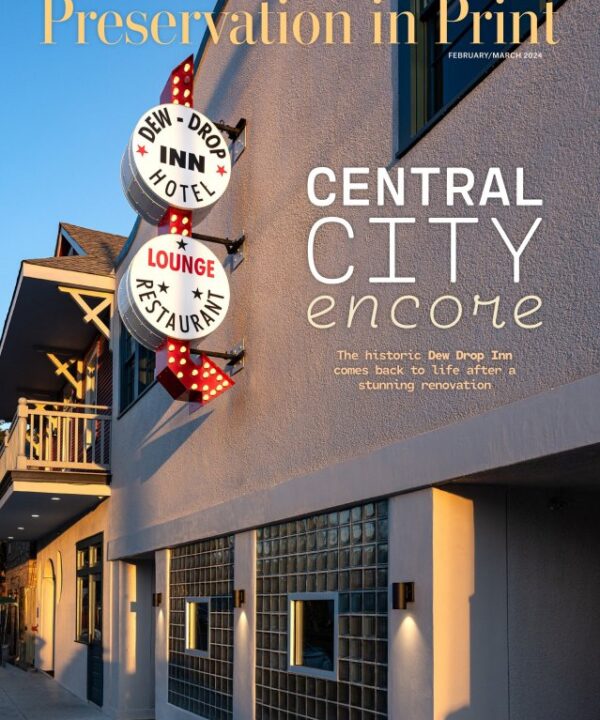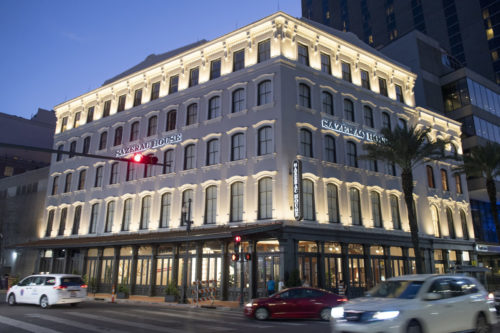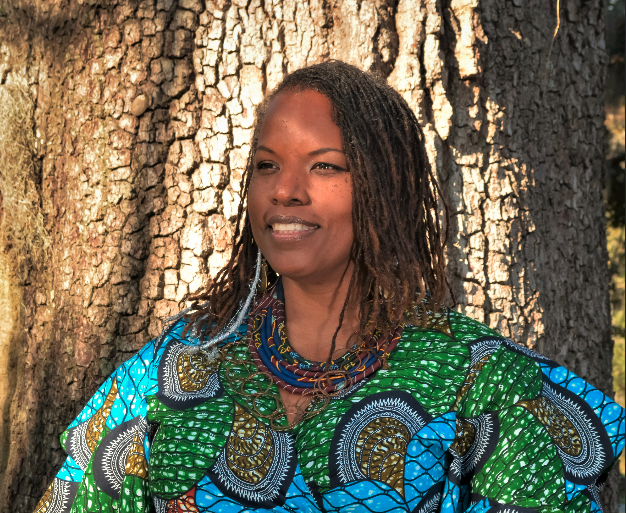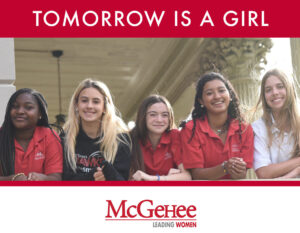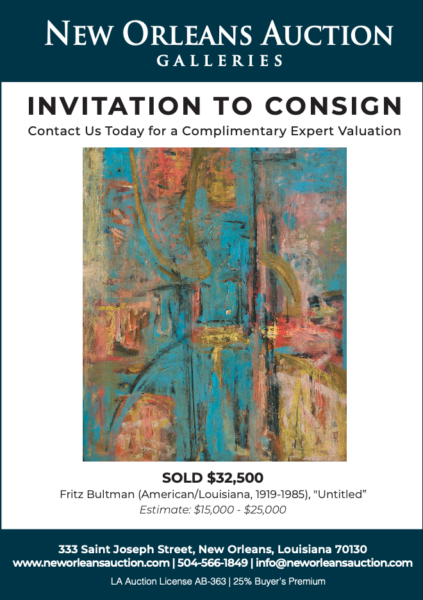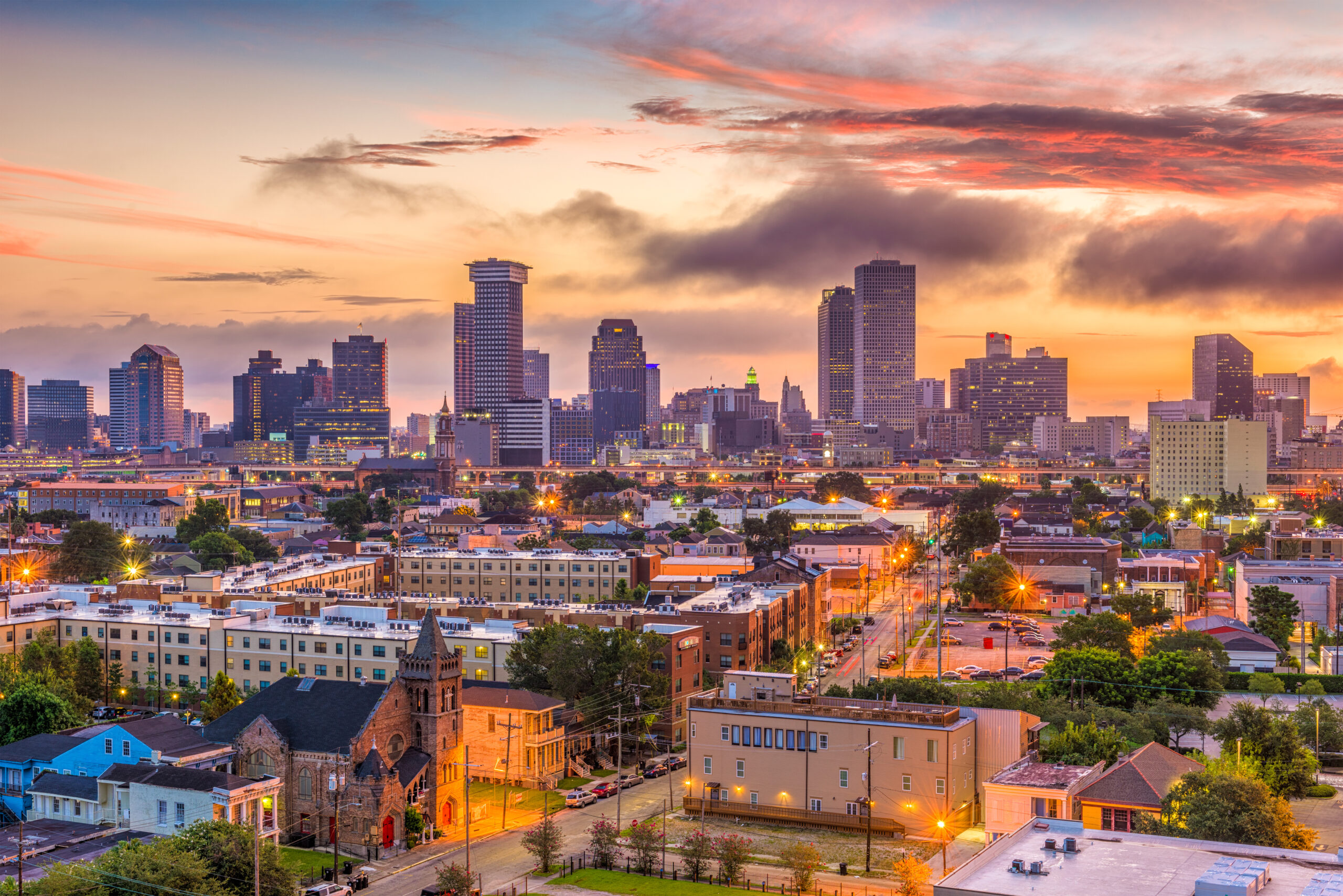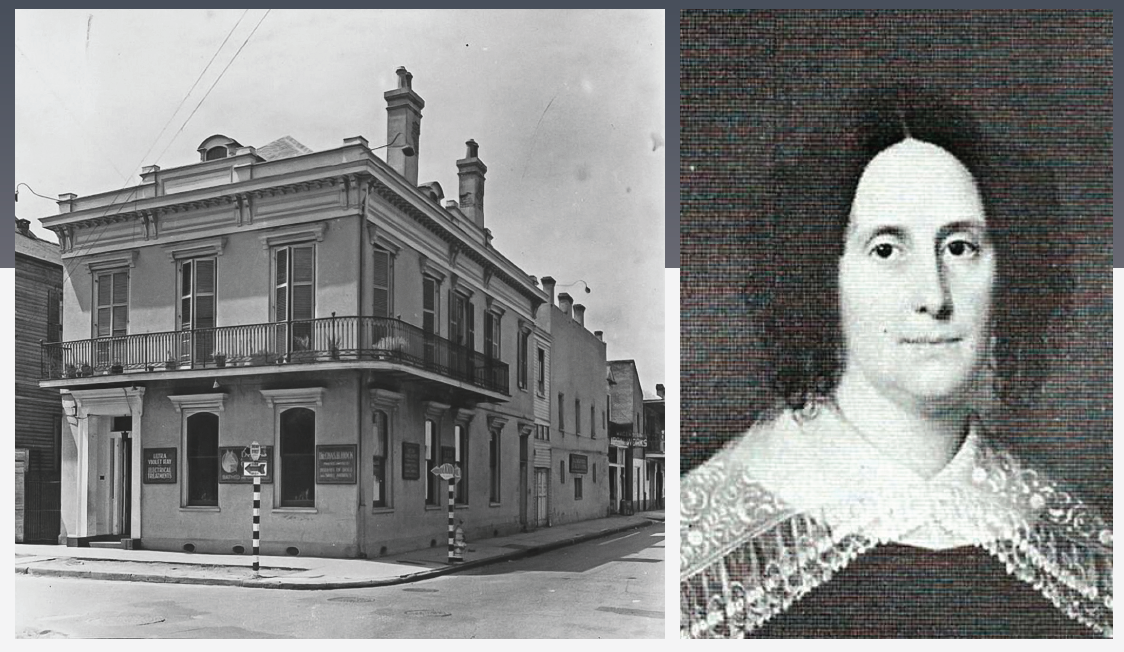Arts, Culture and the Economy: Preserving New Orleans’ Future breakfast series
Feb. 10 • 8:30-9:30am • The Helis Foundation John Scott Center, 938 Lafayette St.
Asante Salaam will show off the new center on the first floor of the Louisiana Endowment for the Humanities’ historic headquarters. This transformative investment by the Helis Foundation is a statement in the city’s future vibrancy and the importance of art and culture to the economy. Free for PRC members, $10 non-members. Learn more & register!
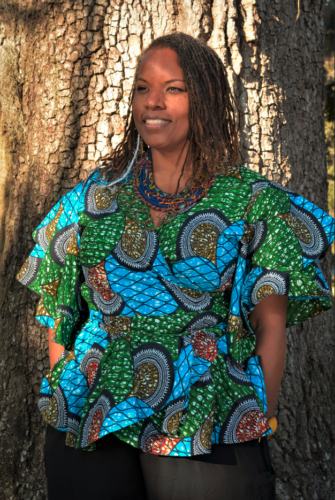 I’m a Preservationist
I’m a Preservationist
Asante Salaam
Founding Executive Director, The Helis Foundation John Scott Center
How is the John Scott Center distinct from other gallery and museum spaces? Why is it special?
The Helis Foundation John Scott Center is an interactive hub at the crossroads of art, culture and social change, with a core thread of humanities and community, unlike any other in the Gulf South.
The center honors the life, work and legacy of John Scott by introducing visitors to the breadth of Scott’s artistic vocabulary, through delving into the themes in 50 pieces of Scott’s exhibited art, such as honoring ancestors, displacement of people, jazz, civil rights and urban life, as well as Scott’s philosophies of jazz thinking, spherical thinking and passing it on. Visitors from all backgrounds are prompted to draw connections to their own lives, to think critically about current issues, and to imagine a brighter future.
The center is special in that it presents to the world Scott’s perspectives as a native New Orleanian and a black man, who is a beloved son, husband, father, artist, educator, collaborator, mentor and humanist — a perspective that is often overlooked or intentionally excluded.
The Helis Foundation John Scott Center is at the leading edge of inclusiveness, catalyzing dialogue and expanding understanding by facilitating visitors’ experiences of a wide range of humanist possibilities interpreted through the hands, heart and mind of a black man who is a proud New Orleans native and a dignified disruptor.
You have held important roles in an array of influential organizations in New Orleans, such as the Mayor’s Office of Cultural Economy, the New Orleans Jazz & Heritage Festival Foundation and the Louisiana State Museum. How do you see culture, art and authenticity driving this city’s future in a tangible way?
From a historical context, New Orleans artistry is globally significant in that it has been and continues to be influential and inspiring worldwide. New Orleans artistry has also been used for decades to entertain and enrich others to become wealthy by capitalizing on and selling art that they did not and do not create. In a genuine response to this exploitation, New Orleans artists have become more and more intentional and deliberate in a very authentic way to gain empowerment through enhancing knowledge about the laws and business practices governing their respective arts disciplines. This mindset shift by artists from being hired hands to becoming presenters and producers of the art that they create could potentially emancipate countless numbers of future artists and their descendants from cycles of ignorance and economic poverty.
New Orleans has a world-renowned arts community, but often we hear that artists have to leave the city to achieve real economic success. What could the city do better to support the local arts community?
City government agencies and local service providers that work with local artists and culture makers can offer user-friendly learning opportunities in grade schools and community venues, where interested participants can be taught that artists are not just people born with a gift — artists are scientists to be compensated as skilled professionals who know their worth. These arts organizations and city agencies could offer mandatory cultural arts and artist sensitivity classes for event promoters, venue program directors and other contractors who secure artists for hotels, restaurants, bars, clubs and events, so they may be taught about living wages and the commitment necessary to be a full-time artist. These cultural arts organizations and city agencies could also run campaigns that celebrate and incentivize artist-friendly establishments for implementing quality-of-life business and compensation practices for artists.
Advertisement
As a native New Orleanian, what do you see as worthy of preservation in this city – be it a building, neighborhood, or part of our way of life?
Our native New Orleanian cultural stewards, the people who are keepers of our stories, our shared lived experiences, our cultural practices, as well as our artisanal craftsmanship specialties, are worthy of preservation in this city as the creators and builders of the historic buildings, neighborhoods and other cultural treasures.
You are an artist. How has this city’s environment informed your work?
The soul of New Orleans is grounded in our heritage-laden neighborhoods, amidst a natural environment of ancient trees and water bodies. That grounding informs my art through integrating soil with elements of plant life, including roots, seeds, peels, petals, spices and other natural elements, as well as assemblages of found and repurposed objects that carry the visceral evidence of previous use.
Overall, my foundational upbringing here in New Orleans rooted me in an appreciation of the pervasive human universality of art, such that we are all born with a sense of artistry, that frequently gets socialized out of most of us during childhood. Art is a universal human language and practice that enriches us all, especially during our early education and development, regardless of our ultimate vocational pursuits. New Orleans is also rife with seemingly conflicting dualities, such as life and death, birth and ancestry, as well as making beauty out of the ugly challenges of black survival, triumph and transcendence. These dualities translate into New Orleanians savoring — and me as an artist, capturing — treasured moments within daily activities.
If you could wave a magic wand and change one thing about New Orleans, what would it be?
There would be a public education system that provides empowering learning, development and life skills for all people. From an equity perspective, this means starting with transformational education for children of black, indigenous and people of color. Education is the gateway to us creating and implementing community development solutions for all challenging facets and aspects of life in New Orleans.
What does historic preservation mean to you?
Historic preservation means honorable protection and conservation for the people and products of art and culture, which make up the history of a people and a place, in this case, our beloved New Orleans.
Advertisements

